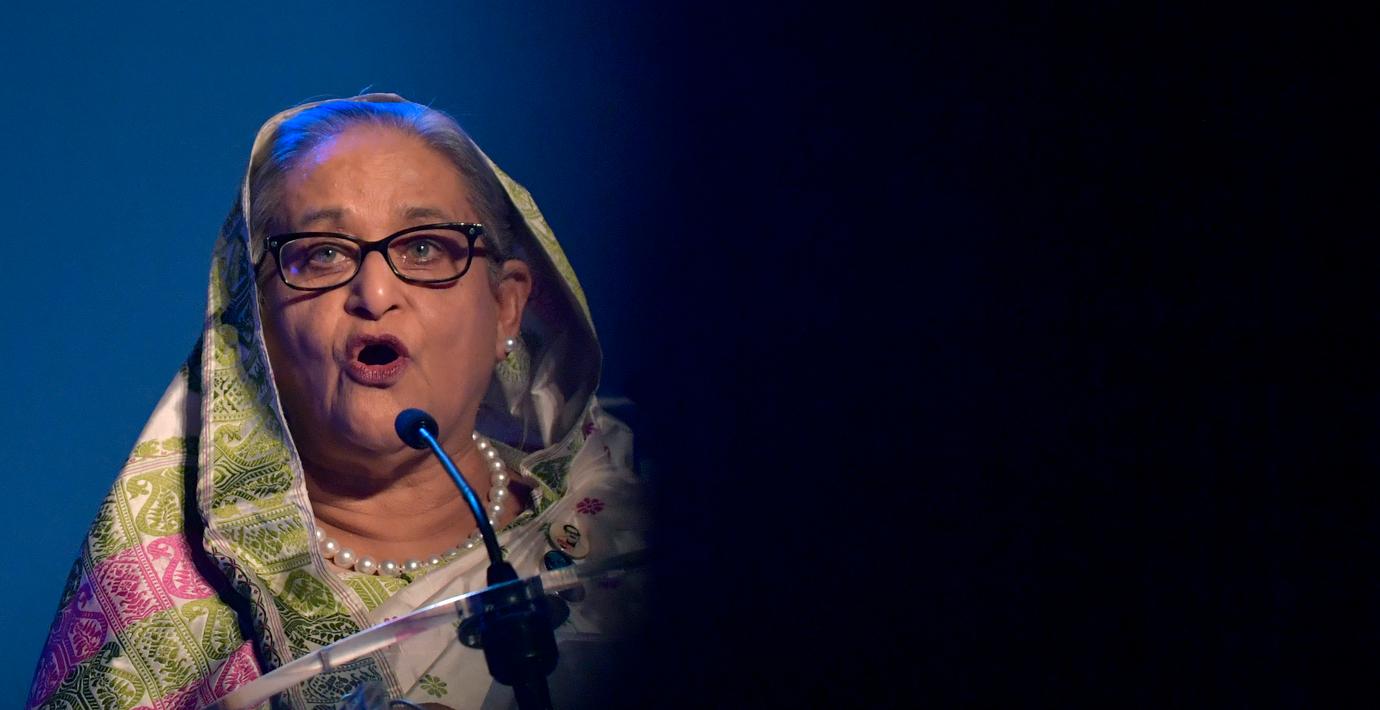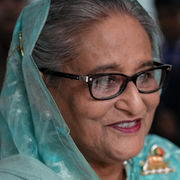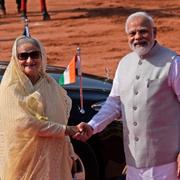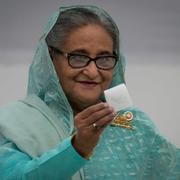
AFP: Urfattig historia borta – men demokratin har rasat
På 90-talet stod Bangladesh premiärminister Sheikh Hasina sida vid sida med nationalistpartiet BNP när militärstyret störtades, nu leder hon ett land som saknar demokratiska alternativ. Det skriver AFP efter 76-åringens högst väntade valseger på söndagen.
Tillbakablicken över hennes politiska karriär handlar om hur hon hyllats och kritiserats på hemmaplan och globalt. Nyhetsbyrån skriver att massgripanden av oliktänkande fått bland annat Washington att reagera.
På den positiva sidan nämns allra främst landets ”ekonomiska boom” som till stor del skett tack vare klädexporten och dess kvinnodominerade fabriker. Det var ett av världens fattigaste länder när det blev självständigt från Pakistan 1971 men fattigdomen har rasat sedan dess.
bakgrund
Sheikh Hasina
Wikipedia (en)
Sheikh Hasina Wazed (born 28 September 1947) is a Bangladeshi politician who has served as the tenth Prime Minister of Bangladesh since January 2009. As the autocratic regime of Hussain Muhammad Ershad came to an end, Hasina, leader of the Awami League (AL), and daughter of the founding father and first president of Bangladesh, Sheikh Mujibur Rahman, lost the 1991 election to Khaleda Zia, with whom she had collaborated against Ershad. As leader of the opposition, Hasina accused Zia's Bangladesh Nationalist Party (BNP) of electoral dishonesty and boycotted the parliament, which was followed by violent demonstrations and political turmoil. Zia resigned to a caretaker government, followed by Hasina becoming prime minister after the June 1996 election. While the country began to experience economic growth and a reduction in poverty, it remained in political tumult during her first term, which ended in July 2001 after an electoral defeat from Zia. This was the first full five-year term for a Bangladeshi prime minister since it became an independent country.
During the 2006–2008 political crisis, Hasina was detained on extortion charges. After her release from jail, she won the 2008 election. In 2014, she was re-elected for a third term in an election that was boycotted by the BNP and criticised by international observers. In 2017, after nearly a million Rohingya entered the country, fleeing genocide in Myanmar, Hasina received credit and praise for giving them refuge and assistance. She won her fourth term after the 2018 election, which was marred with violence and criticised by the opposition as being rigged. Having served for a combined total of over 19 years, she is the longest serving prime minister in the history of Bangladesh. As of 7 January 2024, she is the world's longest-serving female head of government.Under her tenure as prime minister, Bangladesh has experienced democratic backsliding. Human Rights Watch documented widespread enforced disappearances and extrajudicial killings under her government. Many politicians and journalists have been systematically and judicially punished for challenging her views. In 2021, Reporters Without Borders gave a negative assessment of Hasina's media policy for curbing press freedom in Bangladesh since 2014. Hasina was among Time's 100 most influential people in the world in 2018. She was ranked as the 59th most powerful woman in the world by Forbes magazine in 2015 and 42nd consecutively in 2018 and 2022. She was a recipient of the United Nations' Champions of the Earth award in 2015. She was listed among 100 leading global thinkers in 2019.
Omni är politiskt obundna och oberoende. Vi strävar efter att ge fler perspektiv på nyheterna. Har du frågor eller synpunkter kring vår rapportering? Kontakta redaktionen


